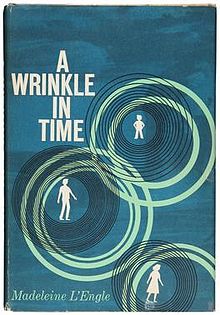Summer 2020 Course Announced!
Science Fiction & the Literary Studies Classroom
ENG 9730
CRN 13021
Dr. Travis Foster
Tuesdays and Thursdays from 4-7 PM
Most of us are familiar with science fiction from Hollywood films: super heroes, space adventures, dystopian futures. These are no doubt important examples of the genre, but they just hint at its many possibilities. This course aims to help students discover a much more expansive sci fi universe. We’ll sample the genre from Nathaniel Hawthorne’s 1844 “Rappaccini’s Daughter” through—yes, a Marvel film—Ryan Coogler’s 2018 Black Panther, with a particular emphasis on how writers and filmmakers have explored science fiction’s decolonial, antiracist, and feminist possibilities. Students enrolled in the class will take a direct role in designing most of the syllabus, filling in the gaps between Hawthorne and Coogler by adding the short stories, novels, films, and poetry that most appeal to their interests. In addition, we’ll work together to curate a list of critical and theoretical readings that help us interrogate how science fiction’s ability to produce “cognitive estrangement” makes us newly visible—newly knowable—to ourselves.
While this will primarily be a course in the criticism and history of science fiction, it will also be a course where we explore practices in the teaching of literature within both secondary and higher education settings. To do this, students will pick a pedagogical resource (books and websites mainly), read it carefully, and then prepare handouts sharing that resource’s best practices with the rest of us. We’ll also take turns teaching, allowing us to try out those practices within a comfortable and receptive seminar setting. In addition, each student in the class will work with me to develop individual course assignment(s). For some, this may be something related to teaching and pedagogy. For others, it will be a research essay or a series of smaller assignments that can be developed into a writing sample, a conference paper, and/or a journal article.
ENG 9730
CRN 13021
Dr. Travis Foster
Tuesdays and Thursdays from 4-7 PM
Most of us are familiar with science fiction from Hollywood films: super heroes, space adventures, dystopian futures. These are no doubt important examples of the genre, but they just hint at its many possibilities. This course aims to help students discover a much more expansive sci fi universe. We’ll sample the genre from Nathaniel Hawthorne’s 1844 “Rappaccini’s Daughter” through—yes, a Marvel film—Ryan Coogler’s 2018 Black Panther, with a particular emphasis on how writers and filmmakers have explored science fiction’s decolonial, antiracist, and feminist possibilities. Students enrolled in the class will take a direct role in designing most of the syllabus, filling in the gaps between Hawthorne and Coogler by adding the short stories, novels, films, and poetry that most appeal to their interests. In addition, we’ll work together to curate a list of critical and theoretical readings that help us interrogate how science fiction’s ability to produce “cognitive estrangement” makes us newly visible—newly knowable—to ourselves.
While this will primarily be a course in the criticism and history of science fiction, it will also be a course where we explore practices in the teaching of literature within both secondary and higher education settings. To do this, students will pick a pedagogical resource (books and websites mainly), read it carefully, and then prepare handouts sharing that resource’s best practices with the rest of us. We’ll also take turns teaching, allowing us to try out those practices within a comfortable and receptive seminar setting. In addition, each student in the class will work with me to develop individual course assignment(s). For some, this may be something related to teaching and pedagogy. For others, it will be a research essay or a series of smaller assignments that can be developed into a writing sample, a conference paper, and/or a journal article.

Comments
Post a Comment